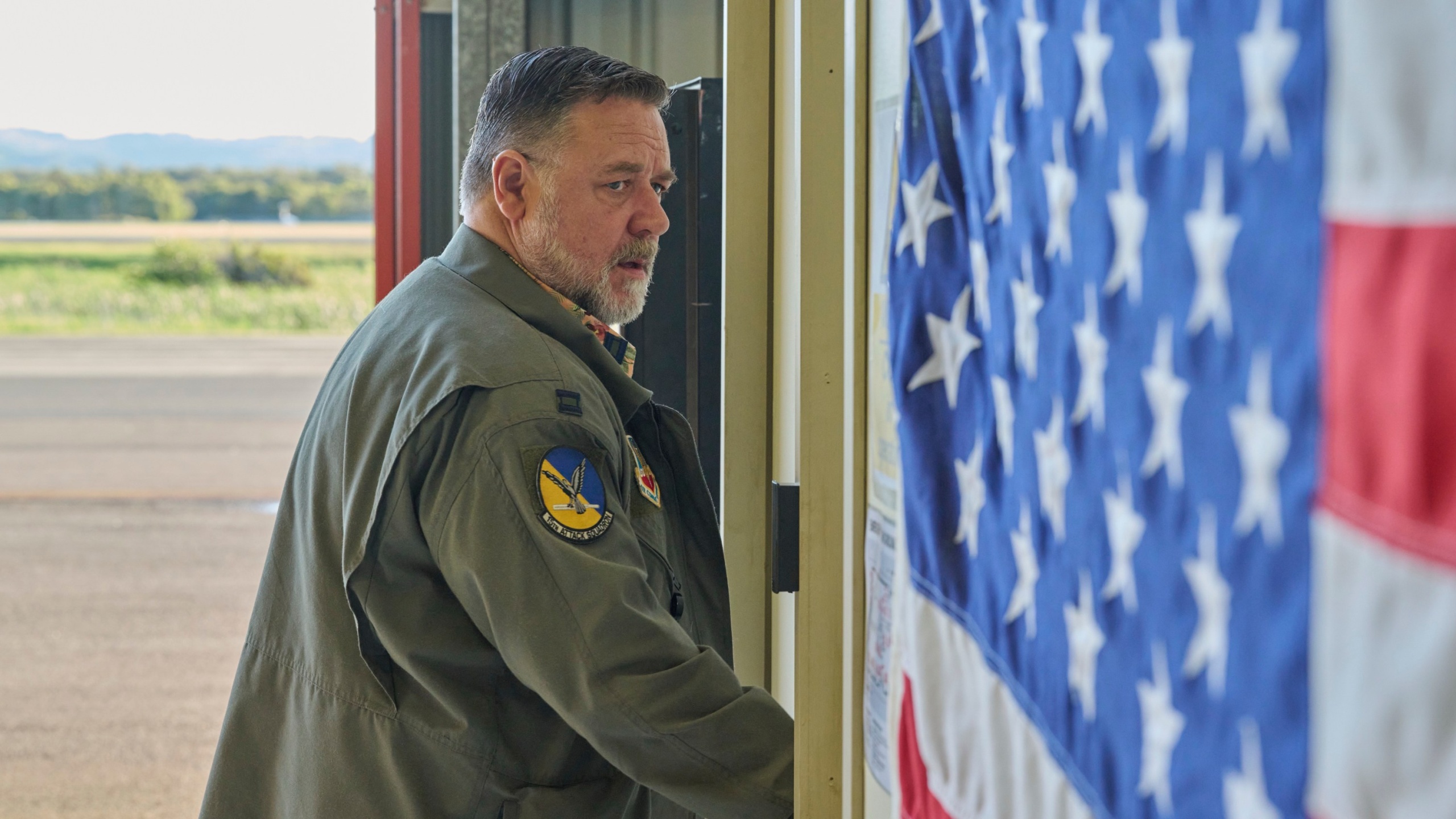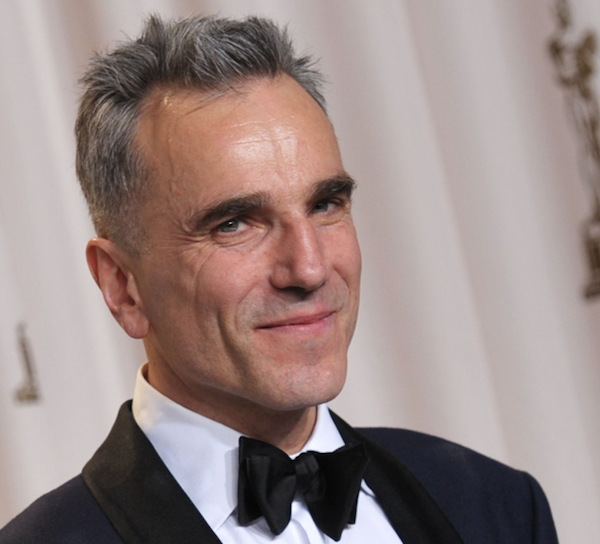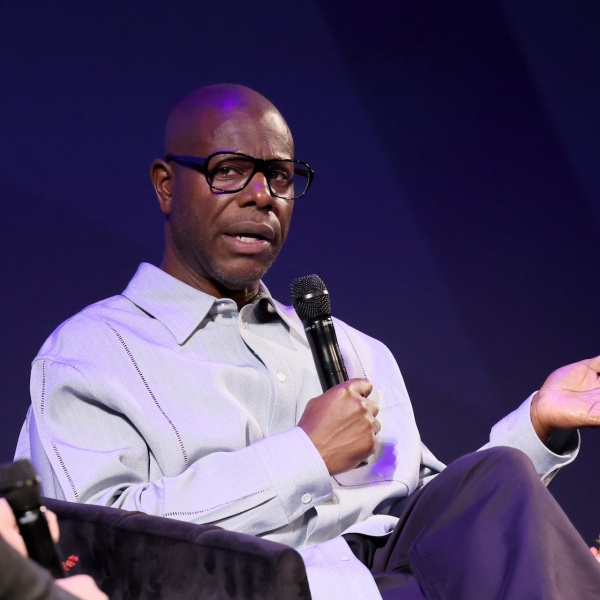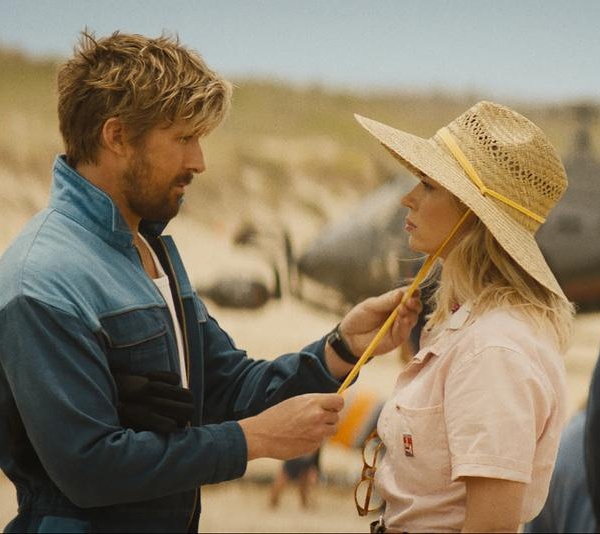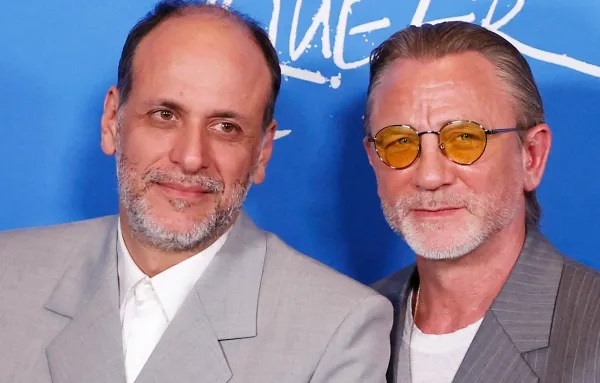It’s not every day that an independently produced film becomes the #1 movie on Netflix. And it’s even rarer when said indie film isn’t a buzzy festival title, but an action film produced on a shoestring budget outside the United States. But that’s exactly what happened on July 18, when William Eubank’s “Land of Bad” shot to the top of the streaming service’s charts seemingly out of nowhere.
The military thriller stars Russell Crowe as a drone pilot who is forced to provide remote support to direct the sole survivor (Liam Hemsworth) of a brutal firefight to safety. The film was produced for a mere $20 million, yet became the kind of streaming and VOD phenomenon that countless producers working with much larger budgets can only dream of.
How do you get so much out of so little? In a recent conversation with IndieWire, “Land of Bad” producers David Frigerio and Michael Jefferson unpacked some of the secrets to their success.

Need to Stretch Your Budget? Head to Australia!
Much of the film’s success can be attributed to the fact that it looks far more expensive than it actually is. From massive explosions to helicopter set pieces, Eubank and his team were able to offer a level of spectacle that often looks closer to a mid-budget studio release than a low budget indie film.
Much of that can be attributed to talent and creative craftsmanship, but Frigerio and Jefferson were also smart about selecting a filming location that gave them the biggest bang for their buck. A favorable currency exchange rate and filmmaker-friendly incentives in Australia allowed them to shoot for 50% longer than they could have in America — the convenient location for Aussie stars Russell Crowe and Liam Hemsworth was just an added bonus.
“We were looking at a number of places,” Jefferson said. “We were looking at Thailand initially, actually, to get more bang for the buck. And then Australia. So when we saw the first budget come out of Australia and the amount of days that we were able to get as opposed to shooting, say, in the States or anywhere else, we were just kind of taken aback. And we just knew it’d be the right home, which led to our ability to shoot this movie in 45 days on the budget that it’s on. That’s a statement. Because if we’d have shot in the States, I think it probably would’ve been the $25 to $30 [million] range.”

You Need Star Power — But They Have to Be Creatively Invested
When it comes to getting films greenlit, stars are king. That’s true in every sphere of the entertainment industry, but especially on independent action films, which often live and die by the pre-sales they generate from casting big names from the ’80s and ’90s. It can be a profitable business model, but doesn’t always produce exciting work.
Hollywood history is littered with stories of independent producers who cobble together massive paychecks for aging A-listers, leaving themselves with virtually nothing to spend on the rest of the film. That approach has led certain actors to build reputations for spending their retirement years making terrible movies for quick paychecks — but Frigerio and Jefferson say “Land of Bad” succeeded because Crowe does things differently. While both men maintain that Crowe’s involvement was essential to getting the film off the ground, they stressed that his commitment to selecting quality roles allows him to find successes like “Land of Bad.”
“We’ve all seen the movie star attaches to shitty film, gets paid a lot of money, production gets about $5 to make a terrible film. We’ve all seen those movies,” Frigerio said. “Russell’s very particular… He’s still a master at his craft. He still very much is engaged with the movies he does. This is not a financial decision for him. So he loved the character and that’s the best you can hope for when you’re out casting these movies, especially as independent filmmakers like Jefferson and I are.”

Even a Modest Theatrical Release Can Pave the Way for VOD Glory
The legacy of “Land of Bad” will likely always be tied to its streaming and VOD success. But Frigerio and Jefferson learned the same lesson as so many other independent producers in recent years: Theatrical releases lend you the kind of streaming credibility that can rarely be manufactured. While their theatrical rollout was cursed by marketing funds that fell through at the last minute, leaving them with only $300,000 to spend on an 1,100-screen release, the film’s performance was still respectable given the circumstances (it grossed $6.5 million at the box office and cracked the Top 10 on its opening weekend). But the real success was the legitimacy and name recognition that the theatrical release provided the film when it eventually hit Netflix.
“It got the word out. And it got the word of mouth out, too. Because people would see the movie, and then they’d start talking about it and be like, ‘Hey, why didn’t I know about this?’” Jefferson said of the rollout. “And it gave us an opportunity for engagement. And so it really did help ramp things up, I think. Because then when it got to Netflix everyone was waiting on it. And then it raced up to number one and it was number one for four and a half days on Netflix, which for just kind of an independent that came out of the blue is probably pretty good. And then we stayed up there for a couple weeks. We were in the top five for three weeks. The theatrical definitely helped with the grassroots efforts for sure.”
“Land of Bad” is now available on PVOD platforms and streaming on Netflix.
